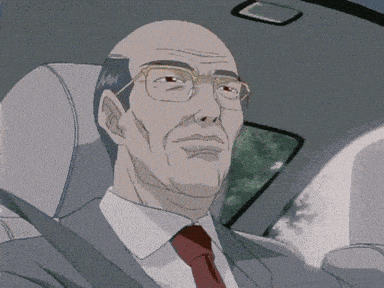- VerseTaku
- Posts
- Freddie Gibbs & Madlib's Piñata and Great Teacher Onizuka: Breaking Through
Freddie Gibbs & Madlib's Piñata and Great Teacher Onizuka: Breaking Through
Freddie Gibbs & Madlib's Piñata album and the iconic Great Teacher Onizuka (GTO) manga and anime series initially seem worlds apart—one a gritty, raw hip-hop record and the other a Japanese comic turned animated series about an unconventional teacher. Yet, both stand as mold-breaking masterpieces that dive into society's underbelly, challenging norms and pushing the envelope on storytelling.

Pinata, released in 2014, is a collaboration between Indiana rapper Freddie Gibbs and California producer Madlib. It's an explosive mix of street-wise lyricism and soulful beats that examines the complexities of life in the ghetto—ambition, survival, and betrayal.
Great Teacher Onizuka, on the other hand, follows Eikichi Onizuka, a former biker gang leader turned teacher, whose unorthodox methods for dealing with troubled students turn the school system on its head, all while revealing the students' and educators' vulnerabilities.
Facing the Music and the Blackboard: Shared Themes of Rebellion and Identity
Both Pinata and GTO resonate through their core themes of rebellion against a flawed system and individual identity. Freddie Gibbs defies the glamorized portrayal of the 'thug life,' while Onizuka breaks away from the archetypal teacher figure.
"Thuggin'," a standout track from Piñata, has Gibbs rapping, "My execution might be televised." It's a nod to the societal spectacle made of black suffering and resistance in America, mirroring the spectacle of Onizuka's teaching methods that question educational norms.
GTO's narrative boots up as Onizuka decides to change the lives of his students, not through lectures, but by exposing the dysfunctional elements of their lives and the outdated practices in the educational system.
The Harmony of Sound and Image: Complementary Storytelling
The seamless blend of Madlib's beats with Gibbs' narratives in Pinata chisels out a sonic story that weaves through the listener's consciousness. The anime adaptation of GTO mimics this through expressive animation and an evocative soundtrack that underscores the emotional growth of the characters.
Blockbuster track "Shame" turns introspection into art much like the anime's gentlest moments, where the depth of character backstory and personal growth are revealed.
Striking a Chord: Emotional Resonance and Cultural Dialogue
Pinata's ability to humanize the struggles within systemic oppression mirrors GTO's empathetic portrayal of teenage angst against society's rigid expectations. Both create a platform for dialogue — where Gibbs discusses the streets and Onizuka discusses the classroom, fans find a space to discuss real life.
"Life is a traffic jam..." Pinata lyrically proclaims, complementing the jammed lives of Onizuka's students, each dealing with their own gridlocks.
Poignant Words and Beats: Lyrics and Quotes as Emotional Echoes
Key lyric from "Deeper": "A love in the street provides a union of souls lost..." echoes the plight of Miyabi, one of Onizuka's most troubled students, whose quest for love and acceptance leads to a deep bond formed with her unorthodox teacher.
"The real lesson begins now!" - GTO; a sentiment that could easily seep into Gibbs' philosophy of hard-earned wisdom through real-world experiences.
Reflective Outro: Why Piñata Beats to GTO's Rhythm
Fans of Piñata can recognize the journey to self-realization and resilience in GTO, while anime aficionados can tune into Gibbs' nuanced storytelling that’s as layered as Onizuka's character development. Through this crossover, audiences witness the complex interplay between melody and visual narrative, understanding the unlikely symmetry of hip-hop and anime in unraveling the textures of human existence.
It's in this intersection we find a meaningful cross-contamination of art — where beats meet ink, and lessons are learned on both the mic and the blackboard. Whether you're vibing to the smooth flow of Madlib's production or cheering for another of Onizuka's wild successes, the message is clear: breaking through the expected patterns is the only way to write your own story.